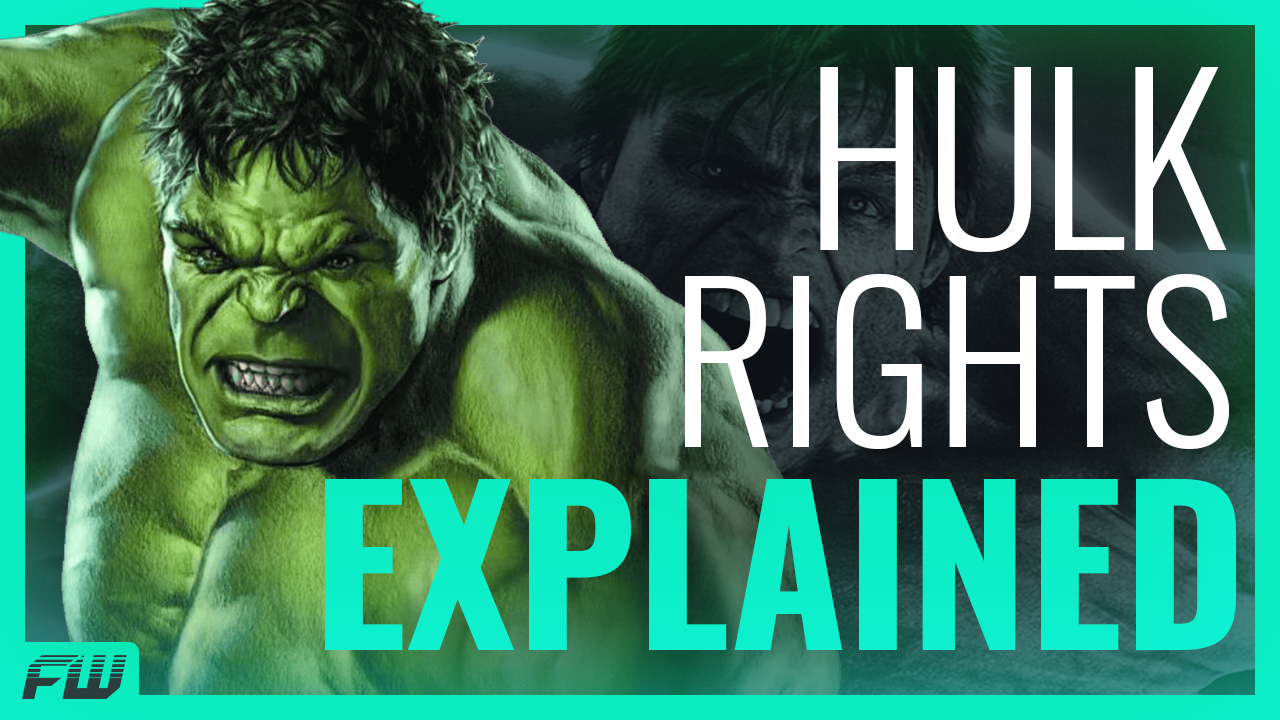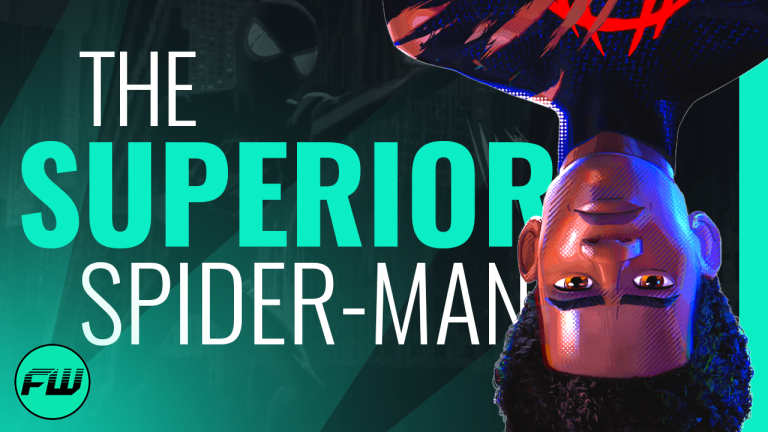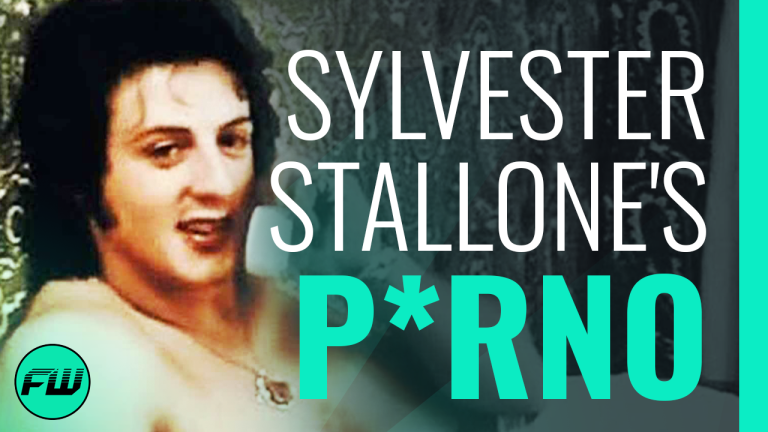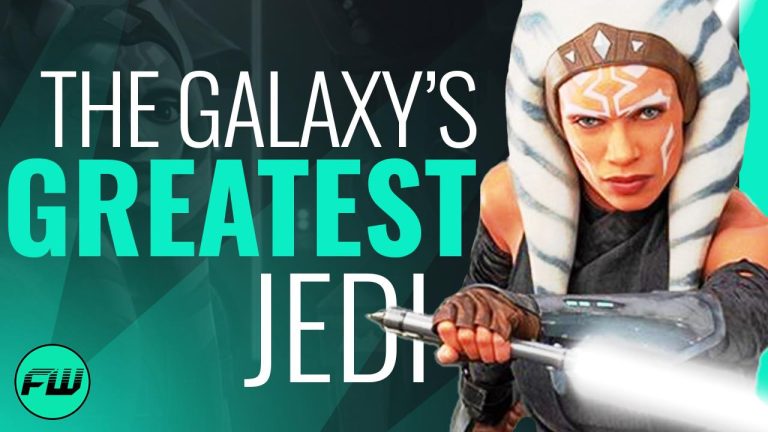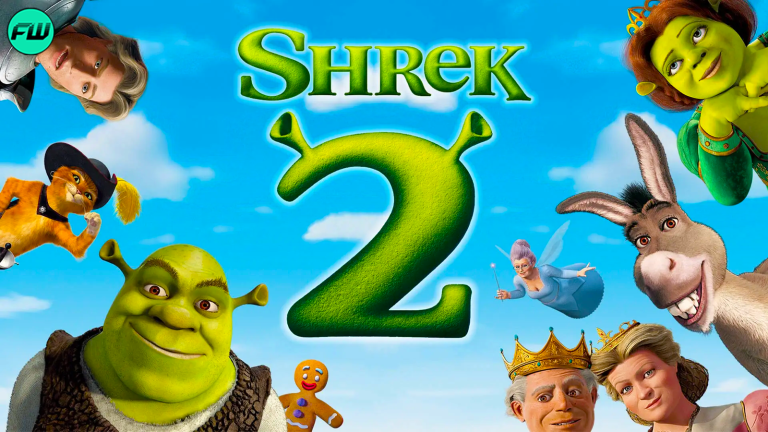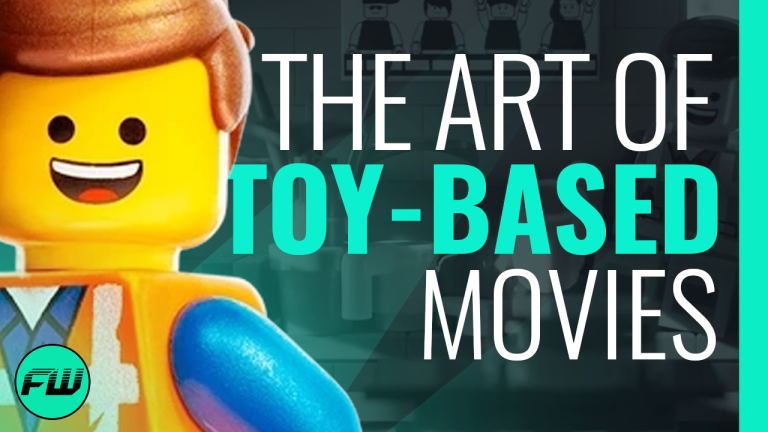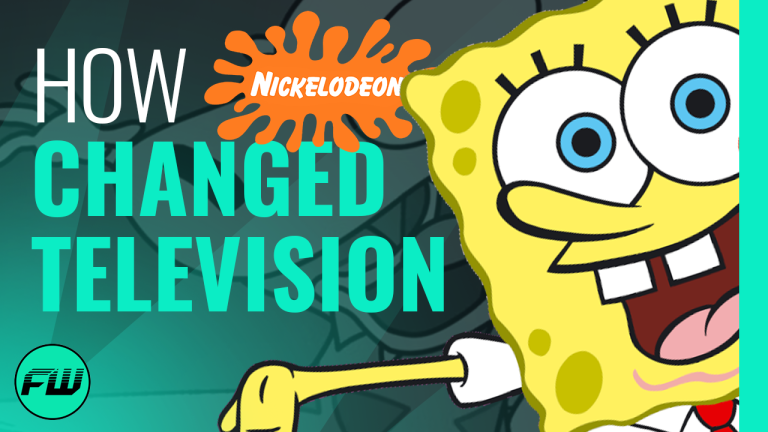In this FandomWire Video Essay, we explain Hulk’s movie rights issues and the REAL reason Marvel won’t make a Hulk sequel.
Check out the video below:
Subscribe & hit the Notification Bell so you never miss a video!
Hulk Rights Explained
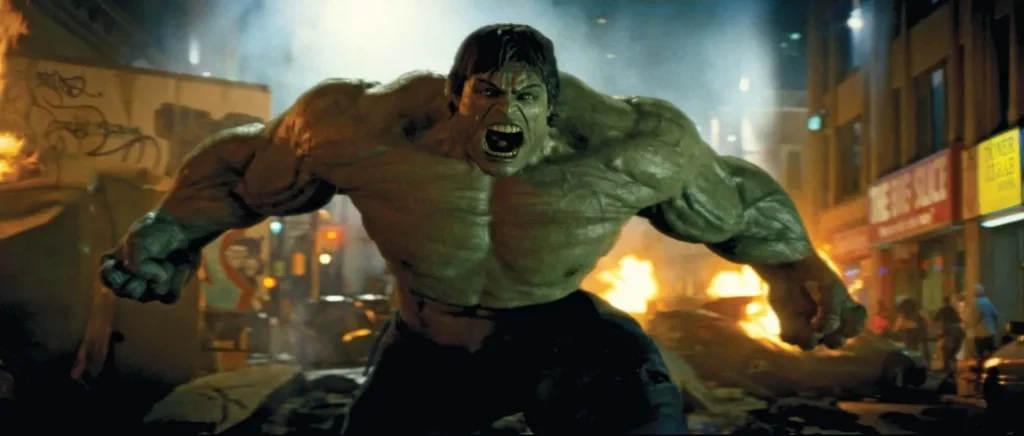
The Incredible Hulk is one of the most iconic characters ever committed to print. He made his debut all the way back in issue one of The Incredible Hulk in May of 1962 after being created by the late Stan Lee. Since then, he has proven to be a huge character for Marvel, both literally and figuratively, going on to join The Avengers as one of Earth’s Mightiest Heroes.
Bruce Banner and his big, green, angry alter-ego have been an enduring presence in the Marvel universe for over half a century at this point. With the Marvel Cinematic Universe growing to become what it is today, it leads one to ponder; why has this hugely popular character not had more solo appearances on the big screen?
To answer that question, we have got to go back to the late 1970s, where Lou Ferrigno and Bill Bixby played the first-ever live-action versions of The Hulk and David Banner, respectively. Yes, you heard that right; the show’s producers decided to change Banner’s first name from Bruce to David for an extremely odd reason.
That show originally aired on CBS, with the filming rights belonging to Universal Television until 1988, when the filming rights for the character were purchased by New World Television.
Somewhat ironically, New World Pictures owned NWT, and they were later acquired by 20th Century Fox, who were subsequently acquired by The Walt Disney Company. But, when they were still an independent company known as New World Television, they produced three television films based on the same version of the Incredible Hulk from the popular TV show; The Incredible Hulk Returns in 1988, The Trial of the Incredible Hulk in 1989 and The Death of the Incredible Hulk in 1990. The broadcasting rights for all three of these films were purchased by NBC.
The first live-action version of the Hulk wasn’t the most faithful to the comic book source material, and the made-for-TV budget was obvious, even in the time that the show was produced. With that said, the popularity of the show amongst general audiences helped prove to industry executives that this character could work in a live-action setting.
Revisiting the show through a modern lens yields a fascinating result. After seeing the visual feast of the modern Marvel movies, it is fascinating to compare the practical ways in which certain visual effects and stunts were achieved on a late 70’s television budget. For the time, it was probably the best adaptation of the character that could be attained.
For the next ten years after The Death of the Incredible Hulk, the character made no significant live-action appearances, either cinematically or on TV. That changed in 2003 with Ang Lee’s Hulk starring Eric Bana. Interestingly, this project was being developed by movie producers Avi Arad and Gale Anne Hurd since 1990, immediately after the previous Incredible Hulk movie was released. Also, Arad and Hurd were developing this project under Universal Pictures, the original rights-owner to the live-action version of the Incredible Hulk.
Following successful big-screen outings based on other Marvel characters such as Spider-Man, Blade, and The X-Men, Hulk released in June of 2003 following a tumultuous production to moderate commercial success. The characterization of the character in the film was laced with heavy trauma, and he was portrayed as more of a tragic, introspective figure rather than the heroic brute, which we would later see in the MCU.
Some critics complained that Ang Lee’s contemplative take on the character stylistically clashed with the film’s comic-book panel editing style. Whilst the movie was undoubtedly ambitious for the time in terms of its CGI and special effects, it is not remembered as fondly as its contemporaries, such as Sam Raimi’s Spider-Man trilogy.
We didn’t see the Hulk onscreen again for the next five years until Edward Norton portrayed him in the character’s only solo appearance within the Marvel Cinematic Universe in The Incredible Hulk. This is where things begin to get messy. Unlike how Ang Lee’s Hulk was both produced and distributed by Universal, The Incredible Hulk was produced by Marvel Studios and distributed by Universal.
Norton’s Hulk was more brutish and animalistic than any previous variation of the character. He embodied the big, green rage monster and went up against The Abomination. Although the movie did moderately well financially, it received a mixed critical reaction. Being that this was also the early days of the MCU being established, there was no multi-picture deal in place to secure Edward Norton.
Between reports that Norton was difficult to work with on set, allegedly attempting to creatively hijack the project, and the fact that he was reluctant to sign a multi-picture deal, this was the one and only time that he played the character of Hulk.
However, as Marvel had already spent a significant amount of capital establishing the character within the universe and he was an integral part of the Avengers roster in the comic book source material, Kevin Feige was not about to allow the small inconvenience of having to recast the role stop him from including Hulk in the 2012 Avengers movie.
Thus, Mark Ruffalo’s version of the Hulk was born, although even with this recast, the distribution rights for the character of the Hulk still remained with Universal, and they retain those distribution rights to this day.
There is sometimes confusion amongst Marvel fans, wondering if Marvel are not able to make a Hulk solo movie due to licensing issues. This is not the case. Marvel can make a Hulk movie whenever they like, and they can also use the character in any projects which they choose to.
The discrepancy between the two options is that if the Hulk character’s name is used in the movie’s title, then Marvel Studios legally have to hand the distribution rights over to Universal, meaning that the profits from the box office would then be split between the two production houses.
Whereas if it is another character’s name in the film’s title, or if the film is titled as an Avengers movie, then Hulk can be slotted in as and when they choose without having to hand over the distribution rights to anyone and they also get to keep all of that sweet box office dough for themselves.
Although Ruffalo has still never gotten a chance to lead a Hulk solo movie, he has had some memorable moments portraying the character in several of the team-up movies. He brings a certain dopey, nerdy nature to the role whilst still being able to deliver darker, emotionally driven scenes.
Preceding the 2012 Avengers movie, Mark Ruffalo signed a six-picture deal with Marvel. He has appeared in five Marvel projects to date, not counting his uncredited cameo in Iron Man 3 and his appearance in the recent She-Hulk Disney+ show.
Although rumors of a solo film based on the classic comic book storyline, World War Hulk, have percolated over the years, this has never come to pass. In the source material, the World War Hulk plot immediately follows the Planet Hulk storyline. Elements of Planet Hulk, such as Hulk wearing armor and fighting in a gladiator pit, were merged into Thor: Ragnarok.
This is an example of Marvel being savvy with their use of the character. They were able to utilize one of Hulk’s most iconic comic book runs whilst still being able to distribute the movie themselves, as it was Thor’s name in the film’s title, not Hulk’s.
There is certainly a demand from Marvel fans to see another proper Hulk solo project, especially if it was to be based on World War Hulk, but Marvel simply will not do it, as that would mean caving to Universal and handing them over the distribution rights and in turn a sizable chunk of the box office revenue.
The actual ins and outs of this contract were only made clear fairly recently. Back when Mark Ruffalo was promoting Age of Ultron back in 2015, he was asked about the Hulk rights issue in an interview with Collider. At that time, Ruffalo himself seemed to have been given incorrect information with regards to the character he plays, saying:
“As far as a Hulk movie, a standalone Hulk movie, Marvel doesn’t really have the rights to that yet. That’s still Universal’s property, so there’s that issue. That’s a big impediment to moving forward with that. Now I don’t think that’s insurmountable, by the way, but I don’t know where it’s going from here for me.”
From that statement, it seems like Mark Ruffalo is under the impression that a Hulk solo movie is not able to be made due to licensing issues between Universal and Marvel Studios. As was previously mentioned, this is not the case, nor has it ever been the case. If the star playing the role is publicly giving misinformation to media outlets, then that should be a clear sign that some clarification is needed.
It was only in late 2021 that the actual details of the deal struck between Marvel and Universal were made public in The Story of Marvel Studios: The Making of the Marvel Cinematic Universe. In the book, which chronicles the meteoric rise of Marvel movies at the box office and within modern pop culture, the reason for the deal coming to pass is explained.
Apparently, Universal’s original preferred plan for the character of the Hulk was to approach different filmmakers and propose development of a sequel to Ang Lee’s Hulk movie. The reason that they were so determined to make a sequel to a movie which only performed moderately from a financial perspective was so that they could retain the rights to the character. If they did nothing, then the rights to the character would have lapsed and gone back to Marvel by default.
After no filmmakers would get on board to produce a sequel, Universal struck a deal with Marvel in 2006. It was a former Marvel Studios executive called David Maisel who originally made the suggestion to Universal that Marvel would make a film based around the Hulk and then pay Universal to distribute it. This was how 2008’s The Incredible Hulk came to pass.
The archived Securities and Exchange Commission document containing the terms of the deal includes several interesting details. One of which is an intriguing comparison to the distribution agreement that Marvel Studios had with Paramount in the early days of the MCU. Perhaps the Paramount deal already being in place helped to convince Universal to agree to a distribution agreement with Marvel. The exact statement in the document reads:
“Universal Studios has agreed to distribute Marvel’s film The Incredible Hulk and sequels on essentially the same terms as those on which Paramount has agreed to distribute the other films financed and produced under the film facility.”
This comparison may be of more relevance than initially thought, though, and could even pertain to the future of The Hulk within the Marvel Cinematic Universe. If the Universal deal is indeed “on essentially the same terms as those on which Paramount has agreed,” then it can be construed that the length of the deal is also matching.
Although a Distribution Term is not mentioned in the document regarding the Universal distribution deal, we do know the duration of the Paramount agreement. The document which covers the Paramount agreement states the following:
“Distribution Term: Paramount shall have the right to exercise its Paramount Distribution Rights with respect to each Picture for an initial period of 15 years commencing on the initial Theatrical Exhibition of such Picture (the ‘Initial Distribution Term’);.”
If we then assume that the duration of the two deals are indeed identical, then this would mean that Disney and Marvel Studios will regain the distribution rights to the character of The Incredible Hulk next year, in June of 2023.
If this is indeed how things go, then it is not out of the realm of possibility that Mark Ruffalo’s sixth contracted Marvel project could be a solo movie based on the World War Hulk storyline. If production on that film were to begin in late 2023, then the project would likely end up becoming a Phase six movie, dropping sometime in late 2024.
When Marvel revealed the Phase five and six slates at the 2022 San Diego Comic-Con, Phase Six contained a number of blank slots. Since then, fans have rampantly speculated on which projects could potentially fill these slots.
After Ryan Reynolds recently dropped the bombshell that Hugh Jackman is returning as Wolverine in Deadpool 3, we also got the news that the next Deadpool sequel will be coming on September 6th, 2024. This is likely the film which will take the position of the first placeholder slot within the Phase Six lineup.
If Mark Ruffalo’s solo Hulk movie does indeed go into production in late 2023, then that project could potentially take the second of the late 2024 placeholder slots within Phase six. However, as cool as it would be to see a Hulk solo movie as a part of Marvel’s Phase Six, all of that is just speculation for the moment.
Hopefully, though, the Universal deal is close to its expiration date, and we won’t have to wait too much longer to see the big angry green guy rampaging his way into cinemas with a solo movie.
With all of that said, what would you like to see for the Hulk’s future within the MCU following the She-Hulk finale? Would you like to see him go back to the more savage version of the character rather than Professor Hulk? Are you looking forward to seeing his arc continue, or do you feel that it is time to retire the character?
Do you feel that Marvel should have made a Hulk solo movie before now, and they have left it too late? If they do indeed go ahead with a Hulk solo movie, what storyline would you like to see them adapt?
Let us know in the comments section down below, and subscribe to the channel for more upcoming content like this. That is unless you want to see me get angry, but you probably won’t like me when I’m angry.
Follow us for more entertainment coverage on Facebook, Twitter, Instagram, and YouTube.
Note: If you purchase an independent product featured on our site(s), we may earn a small commission from the retailer. Thank you for your support.

